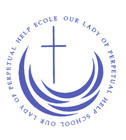- Student Handbook
- Assessment, Evaluation, and Reporting Policy
- Personally Owen Devices (POD) and One-to-One
Inclement Weather Policy
- INCLEMENT WEATHER as per EICS Board Policy, bus service will be canceled when the temperature is below -40C.
- Bus service may also be canceled if road conditions are not safe for travel. In the event that service is canceled, families will be advised via SynreVoice, a message will be placed on the website at eics.ab.ca, or, you may contact us at 780-449-6480.
- Also, PLEASE CONTACT THE SCHOOL IF YOU DECIDE TO KEEP YOUR CHILD HOME.
- ITEMS PROHIBITED ON THE YELLOW BUS: Toboggans, sleds, skis and snowboards are not allowed on the bus.
- DRESS APPROPRIATELY. Please ensure your child is appropriately dressed for the weather. Drivers will insist that children be appropriately dressed before boarding and leaving the bus.
Nutrition Policy
EICS recognizes nutrition as an essential element of student and staff wellness, and acknowledges its role in optimal growth and development. As a division, we are committed to creating nutrition environments in schools that promote and provide access to healthy food choices for all. Our Administrative Procedure reinforces the principles of healthy eating outlined in Eating Well with Canada's Food Guide and the Alberta Nutrition Guidelines for Children and Youth. Our education for students, staff, and parents works with the Comprehensive School Health approach.
In support of our administrative procedure on nutrition, OLPH is encouraging students to make healthy choices when it comes to celebrating birthdays and holidays. Our goal is twofold:
- Make birthdays and holidays special while also ensuring students’ feel safe and included.
- Birthdays are important to every child and students like to celebrate with their classmates. However, sending in a food treat to the classroom to celebrate can exclude those children who have food allergies, food intolerances, diabetes, or other dietary restrictions. 1-in-2 Canadian households are impacted by food allergy. Anyone serving food to children needs to be aware of food allergies and the potential for a life-threatening allergic reaction. Allergic reactions can range from mild to severe and even fatal.
- In addition to dietary concerns and allergies, some parents may not be able to send in treats for their child on birthdays or special days because of financial hardships. We want all our students to feel included and equal here at school.
- To “walk the walk” not just “talk the talk.”
- Good nutrition and the value of healthy food choices are often taught in the classroom. However, many times foods served in the classroom, in the case of birthdays, class parties or rewards for behavior, are low in nutrients and high in calories, preservatives, dyes and other additives.
- This sends students a mixed message – that good nutrition is just a part of their education and is not important to their health. To send the right message and to keep our children healthy, teachers, staff and parents can work together to offer healthy classroom party alternatives.
If you would like to send in 'treat' for sharing with the class for any reason we ask that you always first speak with your child’s teacher. Children are encouraged to expand the definition of ‘treat’ to be anything special, not just cookies or cupcakes. Small toys, such as temporary tattoos, book marks, or spinning tops, are always popular. Healthy snacks, like cheese and crackers, fruit kabobs, or yogurt tubes are also good options for treats.
Violent Threat Risk Assessment (VTRA) Protocol
OLPH School is committed to providing a safe and caring environment for all students, clients, staff, and community members. As such, we have worked together with police and community partners to adopt a Violence Threat Risk Assessment (VTRA) Protocol for the Elk Island region. This is a systematic and collaborative approach to threat assessment, whereby community partners work together to investigate potential threats and put supportive interventions in place. VTRA promotes a common language and understanding of threat assessment makes use of the expertise of various community partners and encourages a multidisciplinary approach to violence prevention.
All VTRA partners are committed to intervening when behavior indicates an individual is
moving along a pathway toward serious violence. Please be advised all threats of violence will be taken seriously and investigated according to the VTRA protocol. Examples include, but are not limited to the following:
• violent behavior with the intent to harm or kill another person;
• verbal or written threats to seriously harm others or cause significant property damage;
• internet, text, or social media threats to seriously harm others;
• possession of weapons including replicas;
• bomb threats or making or detonating explosive devices;
• fire setting; and
• sexual intimidation or assault.
The Elk Island VTRA Protocol outlines how schools and agencies will respond immediately to threatening behavior. The RCMP and school administration is always involved as a partner early in the process, with additional school division and community supports being brought in as needed. This may include psychologists, social workers, family-school liaison workers, mental health clinicians, and other professionals as relevant to the situation.
Parents and guardians will be notified as early as possible in the process. Personal information shared throughout the VTRA process will respect and balance each individual’s right to privacy with the need to
ensure the safety of all.
The full Elk Island Violence Threat Risk Assessment Protocol is can be found here.
